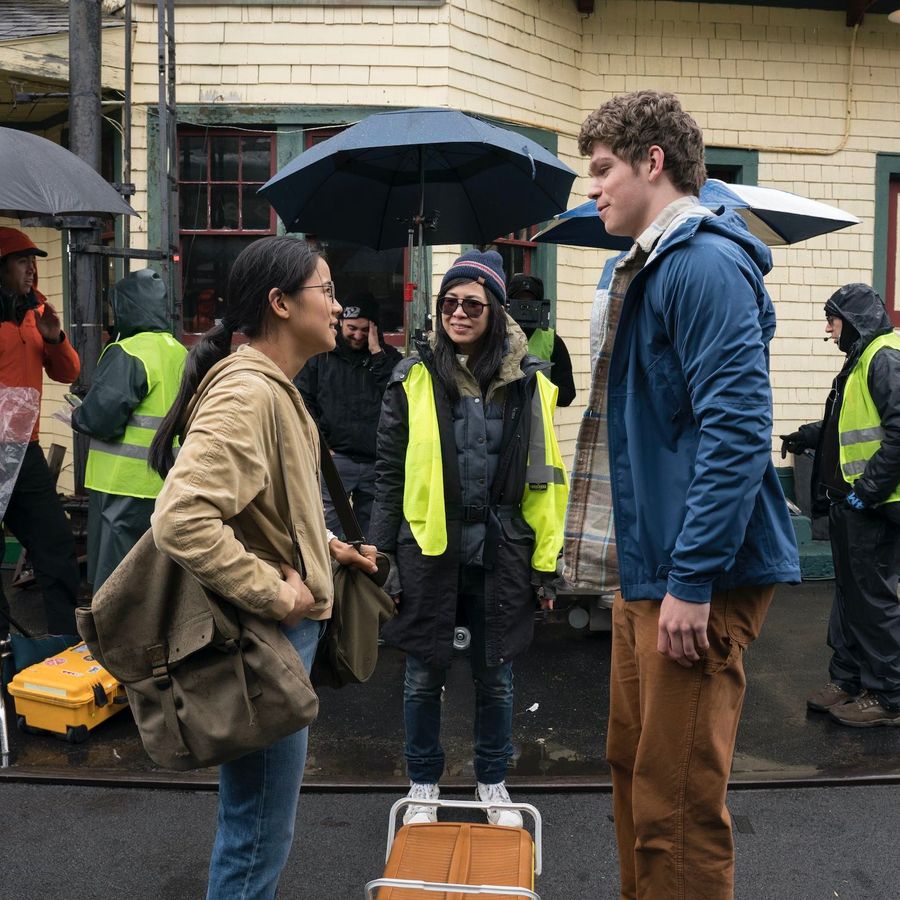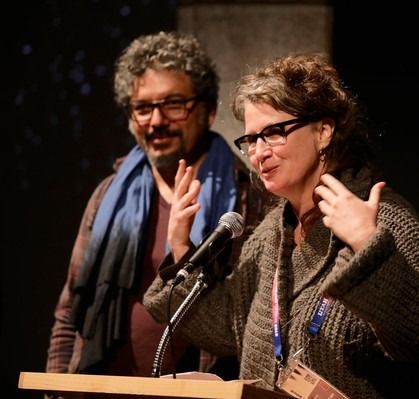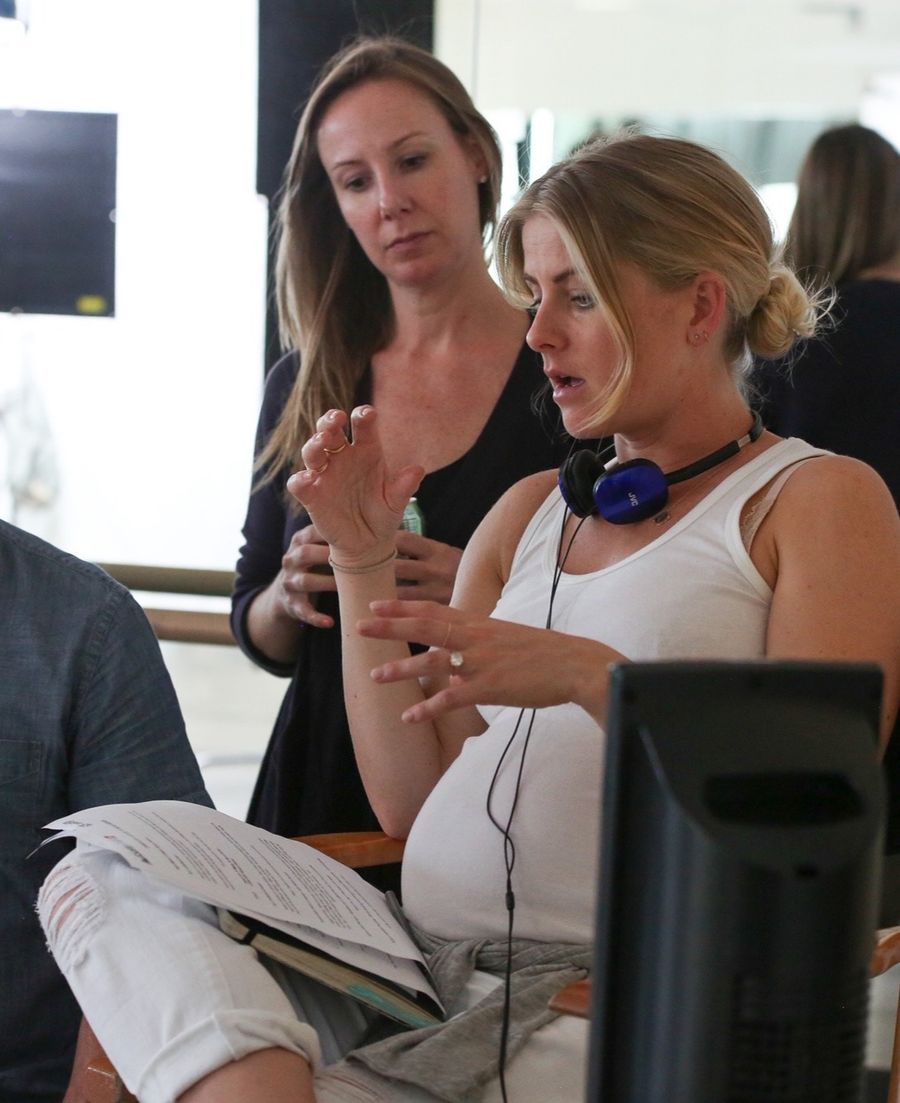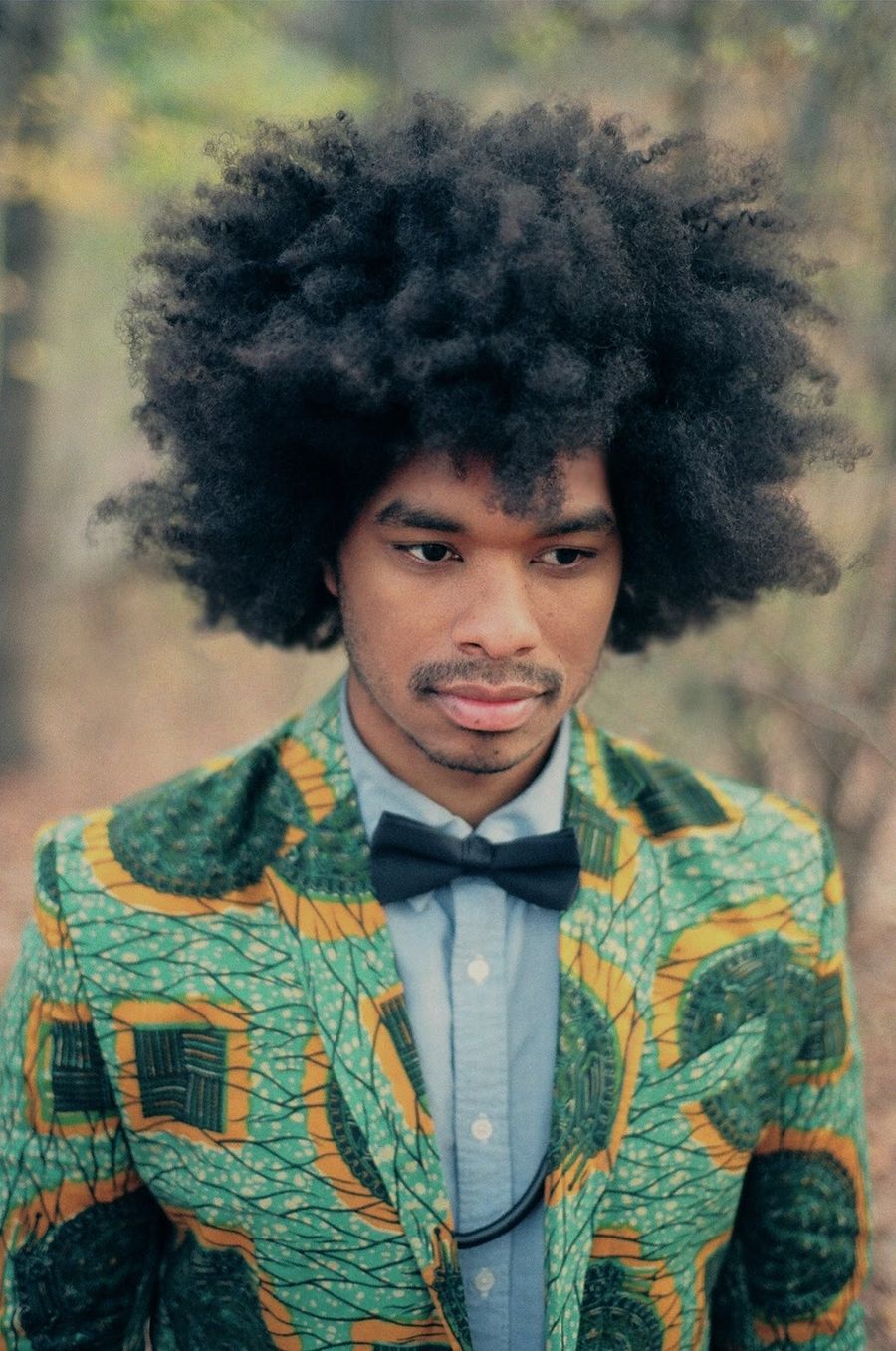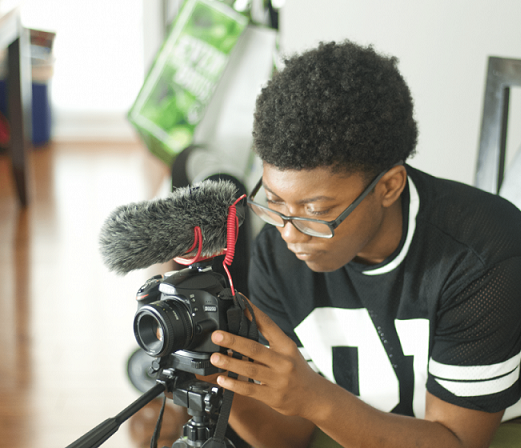Cover and Header Photos Courtesy of Kale Chesney
You didn’t think it was possible to stare at a computer screen for as long as you have, but you’ve defied science in the screen-staring-athon that is known as editing your film. Now that you’re in the homestretch, your mind turns to the important question of what you’d like your project to sound like.
It can feel like a daunting task in itself, especially if you’re already facing a tight budget and looming deadline. If you’re like most independent filmmakers, collaborating with a composer might be a longshot. But that doesn’t mean you have to settle for stock music, in fact, high quality cinematic music is available and accessing it is a lot easier than you may think.
Music licensing agencies like Marmoset specialize in curating a roster of artists, bands, and record labels for licensing and can collab with you on any creation. But, first the music licensing agency breaks down the creative process to help you identify what you even need.
As an extra treat, please click here for a special promo just for our FREE THE WORK community: 20% off music licensing with Marmoset!
1. Know what you don’t want.
Knowing what you don’t want is a great first step toward discovering the right kind of music for your project. Begin compiling a list of everything you don't want your project to sound like (i.e. any instruments you’d like to avoid incorporating). You can even reference videos or films that you’ve seen in order to see how you want to differentiate from them in terms of the style/genre they’ve incorporated as their soundtrack.
Creating a “don’t” list also prevents you from defaulting to selecting music that—while intriguing to your personal preferences—doesn’t check the boxes for this specific project’s criteria. Music can be such a personal thing so it is natural to gravitate toward music that sounds good to you. So identifying the “don’ts” will prove to be a roadmap for staying on track. Once you start thinking about the project’s most essential requirements, you’ll be surprised how your search results will narrow down.
The don’t rule also helps in avoiding the pitfalls of going for a song that’s outside your budget or resources. Knowing what elements you don’t want expedites the process of getting the song licensed on a tighter timeline. This is especially important in the case of requiring a custom license.

2. Identify what you want the mood or tone of the project to be.
Now that you’ve narrowed down what music isn’t right for this specific project, start thinking about how you would describe the mood or emotion of the scene in question. What words come to mind? Most music licensing websites will allow you to filter a search for songs by things like mood or emotion like this one.
Need a little help identifying the right words to describe the project’s mood and tone? Marmoset’s producers suggest asking yourself these four questions:
-
Who’s the target audience?
-
What is the film supposed to feel like?
-
How are you supposed to feel at the end?
-
What’s the main takeaway of the project?

3. Lean on the experts and be specific.
You’ve decided to reach out to a team of experts to help in your music search, what do you need to know? At most licensing companies, you'll be in the hands of their creative team, people who handle music searches every day for clients. Having an extensive knowledge of the roster, these are the people who know exactly where to look when you say you’re on the hunt for something really specific—or if you just need an idea of where to start.
By defaulting to those who work with their catalog day in and day out, you’re joining forces to find music even quicker. After all, these are the people who make it their business to know the music roster like the back of their hand. The cherry on top? They know exactly how to navigate the nitty gritty of sync licensing terms.
Already found the song but not finding the right license to fit your project? It’s not the end of the road. Next step is to reach out to the place you’re wanting to license the song and request a “custom license,” this ensures your project is properly covered (a.k.a not having to worry if your video will be flagged on YouTube or elsewhere for removal).
Having a music licensing expert guide you through the custom license terms guarantees your project is covered within the sync license agreement. To keep the momentum of your music search going, pass along as much information as possible in your initial outreach. Here are some questions you’ll want to answer and provide right off the bat when reaching out to a music licensing team:
-
Client: Who's this video for? About how many people do they employ?
-
Content: What's the video about?
-
Lifespan: How long will this be live online or where will it circulate?
-
Project Title: Do you have a project title I can file this under?
-
Picture: Do you have a video you can share?
Struggling to describe the mood or tone of your project? Try finding a song reference that you can refer to as an example that will point the music licensing team in the direction you’re envisioning. Never be afraid to send over links and other references that inspire you.
Once you’ve passed along these details, you can jump straight into talking budget and ironing out terms. And if you’ve already pinpointed the answers to the first two questions leading up to this third step, you’ve got a partial creative brief on your hands that you can send along, too. Remember, more information to send along means a quicker turnaround.
When working with a music licensing team, confirm how long it will take for your search inquiry to be answered. In providing as much information as possible in the initial outreach email, they can start the licensing process immediately.
FAQ's
Q: My budget is tight, what should I do?
A: It doesn’t hurt to get in touch with the licensing team, such as ours, to talk budget even if it feels like you've depleted your resources. Another perk of working with music licensing experts is that they understand the nature of negotiations, so they may even be able to find ways to work within your budget constraint. But a good rule of thumb is to always factor in music as part of your production’s budget as early on as possible.
Q: What’s the difference between working directly with a licensing agency and working with a supervisor?
A: This really depends on the level of involvement you’re looking for. A music supervisor is going to have more creative input with the development of your film’s soundtrack. In the specific case of independent film Clementine, Marmoset collaborated with filmmaker Lara Jean Gallagher as music supervisors. Together, Gallagher and Marmoset created a soundtrack for the film by licensing existing music from the Marmoset music roster.
A music supervisor will sit down with you as the filmmaker to discuss the film scene by scene. They’ll work with you on a more in-depth level, ensuring they understand exactly what mood or tone you want to see translated through the music.
Q: What’s the difference between licensing existing music and working with a composer?
A: Working with a composer to create custom music varies from licensing music as you’re scoring a soundtrack that’s totally unique to your film. Apart from developing music that’s completely original, in the case of custom music, you’re also working with a professional composer who can translate what you want into musical terms.
Weighing what’s best for your needs, consider your budget and how quickly you need to place music to picture. Working with a music supervisor to find music for your film often guarantees a quicker turnaround than creating an original score.
Creative agencies such as Marmoset are equipped to lend a hand in both music licensing or custom music—so if you’re in doubt, our team can walk you through which option is best for your project.
Marmoset is a full-service music agency, representing a highly curated roster of diverse and rare artists, bands, record labels and vintage recordings for music licensing. Our team scours the planet to deliver the perfect song for any project.
Marmoset Studio goes beyond music licensing, where our award-winning Music Production Team collaborates with artists and bands to record original music, sound design and custom scores for every need.
Create or license music for any project—all in one place.
Marmoset is the only purpose-driven, certified B Corporation in the industry, investing 10% of profits directly back into the community.
